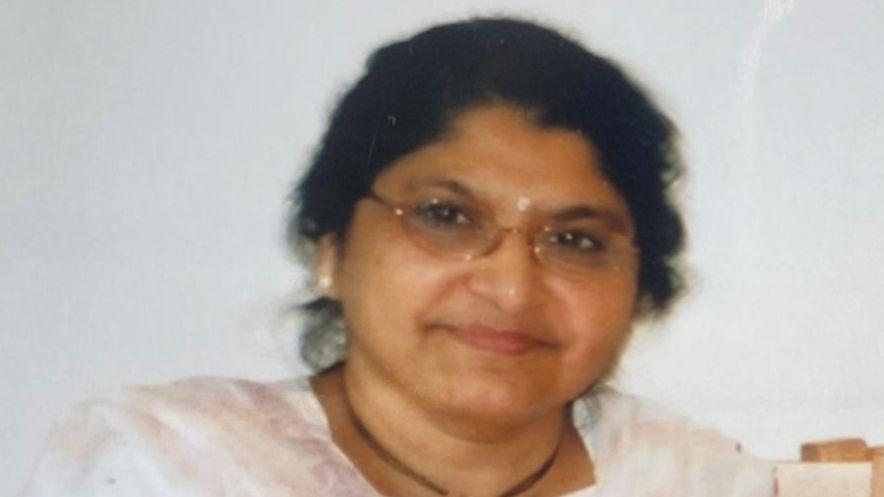The granddaughter of someone who perished in the Air India Flight 171 disaster has stated that a starting assessment of the event was “lacking” and that she “cannot find serenity” unless those at fault are made to answer.
“It does edge us a little nearer to grasping the situation,” Ria Patel communicated to BBC’s Newshour, but continued: “I desire to attain resolution.”
She is among a number of voices within the UK to highlight the necessity for explanations concerning the fundamental reasons for the accident, which transpired shortly after departure in Ahmendabad on June 12.
A starting assessment, made public on Friday, determined that fuel to the Boeing 787 Dreamliner’s engines was stopped shortly after lifting off. The probe is still underway.
Manju Mahesh Patel, 79, was among the 260 individuals who died – the majority of whom were travelers – when the London-destined aircraft plummeted into a heavily inhabited area in the western Indian metropolis.
Her granddaughter considered reading the assessment “quite devastating”, as it contained visuals from the immediate aftermath of the accident – including the debris – that were challenging to process.
“Personally, I can’t quite cease contemplating what my grandma’s concluding moments must have resembled,” she expressed from her residence in Buckinghamshire.
Ms. Patel’s grandmother had been residing in Ahmedabad for the preceding months, undertaking charitable endeavors at a place of worship. Manju’s offspring was scheduled to collect her at Gatwick that evening, and she was reportedly eager to reunite with her four grandchildren within the UK.
“This represented the opportunity to reconnect with her following a decade,” Ms. Patel conveyed. “Knowing that we won’t have the chance to see her once more, it is truly difficult.”
Information obtained from within the plane implies that both of its fuel regulation switches shifted from the “run” to the “cut-off” setting within a second shortly after departure.
These switches are generally only deactivated once an aircraft has touched down and arrived at the gate, or during crisis scenarios. India’s Aircraft Accident Investigation Bureau (AAIB) did not specify whether a crisis scenario had unfolded onboard in its starting assessment.
The cut-off then triggered both engines to forfeit propulsion, the AAIB assessment discovered.
More on flight AI171
For Ms. Patel, the starting assessment still alludes to several hypotheses and its conclusions are lacking.
However, she emphasized how “incredibly vital” it was for herself and others to ascertain the fundamental origin of the accident.
“I feel as though I cannot genuinely find serenity concerning what has transpired, unless I comprehend where the responsibility rests.”
Sameer Rafik, a relative of accident victim Faizan Rafik, is likewise requesting further specifics to be presented.
“The Indian Government ought to make public the cockpit audio for the families who suffered the loss of loved ones,” he stated. Only following that “will we then understand the events”, he communicated to the BBC.
Sameer Rafik, relative of Air India victim Faizan Rafik, desires the cockpit recordings from the accident to be released [BBC]
There existed 53 UK citizens onboard the Air India aircraft when it crashed.
Miten Patel, whose parents were aboard the aircraft to journey back to their residence in Kent, stated that the assessment was merely the commencement of a distressing journey.
“There is considerable resentment, there is considerable disappointment,” he communicated to the BBC from his residence in South London. “However, we must ascertain the cause.”
Patel, who now dons the identical ring his father Ashok was donning on the day of the accident, urged patience. “It will prove challenging, but we must ensure it is executed accurately.”

Miten Patel, the eldest offspring of victims Ashok and Shobhana, stated it was crucial that the probe was executed accurately [BBC]
Dr. Mario Donadi, a companion of another victim who perished in the Air India accident, characterized the initial conclusions as a “tremendous insult” on BBC Radio 4’s Today program.
His “cherished colleague”, Dr. Prateek Joshi, had been journeying back to the UK alongside his family. He captured a photograph of himself, his spouse, and three children mere moments prior to departure.
“How [can] something so insignificant [as] a straightforward switch being deactivated result in such a forfeiture of existence, of such immense aspirations?” Dr. Donadi inquired.


